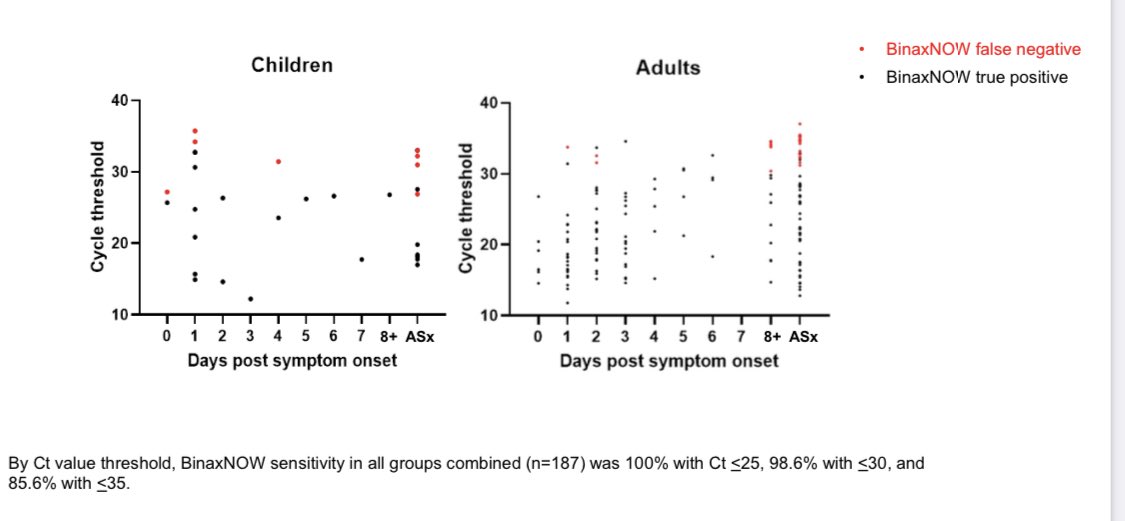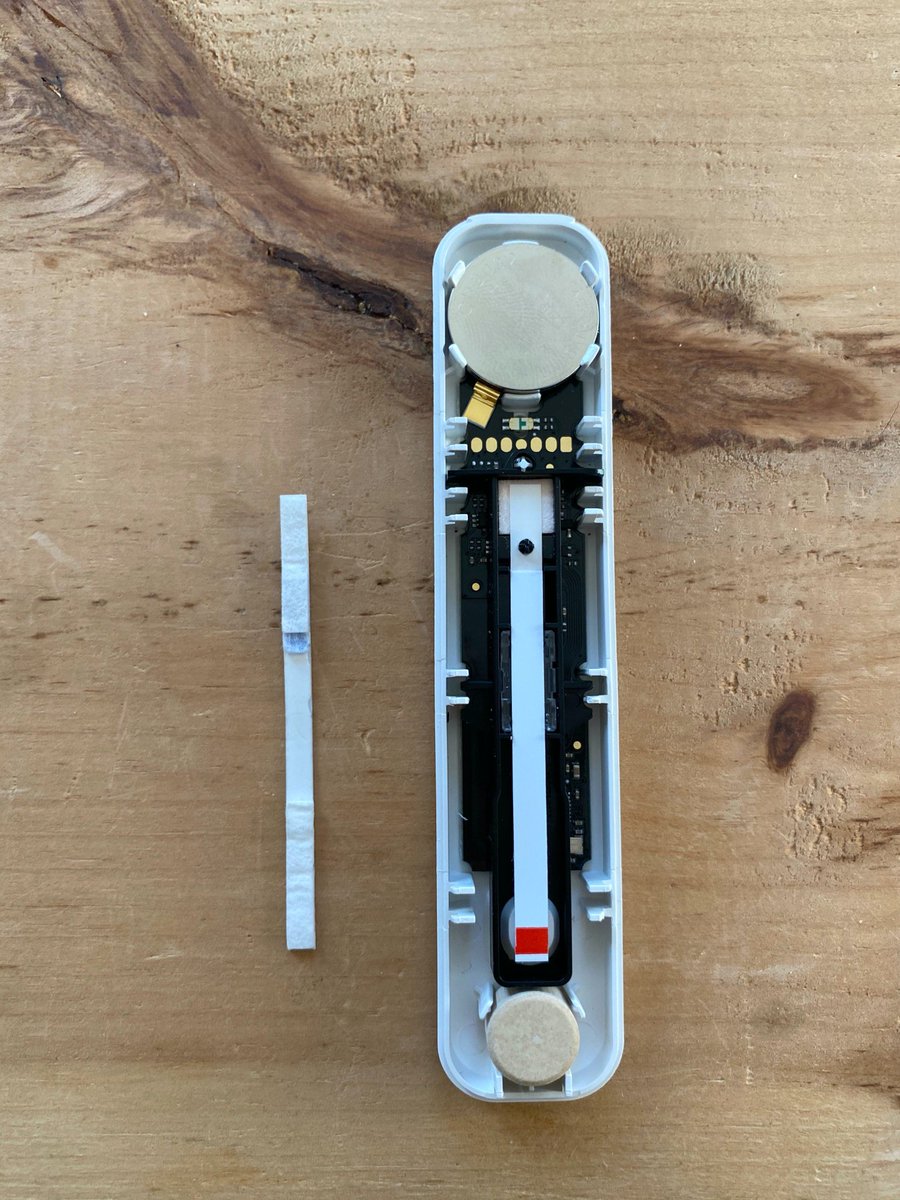
THREAD
ARGH. Google’s new effort shows PERILS of lab based PCR screening
Great they’re trying, BUT:
“Employees are guaranteed a [swab] within 3 days of requesting.. & results back within 2 days of lab receiving sample”
So... 6 DAYS!! from moment deciding a test is wanted
1/x
ARGH. Google’s new effort shows PERILS of lab based PCR screening
Great they’re trying, BUT:
“Employees are guaranteed a [swab] within 3 days of requesting.. & results back within 2 days of lab receiving sample”
So... 6 DAYS!! from moment deciding a test is wanted
1/x
https://twitter.com/wsj/status/1340058029157478403
That the test is being performed weekly is great. Perhaps people can order ahead. Still, with shipping, it will most likely be 3 days between the swab being used and result provided back. If it’s positive, that’s 3 days of walking around positive.
2/x
2/x
This is a good effort from Google.
But this sheds concrete light on the problems of delayed test results for an acute respiratory virus.
A 3 day wait erases ~50% of the EFFECTIVENESS of the test to stop transmission. A 6 day wait erases ~90% of the effectiveness
3/x
But this sheds concrete light on the problems of delayed test results for an acute respiratory virus.
A 3 day wait erases ~50% of the EFFECTIVENESS of the test to stop transmission. A 6 day wait erases ~90% of the effectiveness
3/x
Rapid tests - even if less sensitive than PCR (which they are barely less sensitive for contagiousness and more specific) - are MUCH more Effective to slow spread.
FDAs continued failure to recognize test Effectiveness as important in a pandemic is causing excess deaths.
4/x
FDAs continued failure to recognize test Effectiveness as important in a pandemic is causing excess deaths.
4/x
This shows how Critical Speed of results is.
Using a high (pink) or low (gray) sensitivity test at different frequencies and w results returned at 0 (rapid), 1 or 2 days, we show that as soon as results take 2 days to return, most benefits of weekly testing are lost.
5/x
Using a high (pink) or low (gray) sensitivity test at different frequencies and w results returned at 0 (rapid), 1 or 2 days, we show that as soon as results take 2 days to return, most benefits of weekly testing are lost.
5/x

This figure is from our @ScienceAdvances paper with @DanLarremore @jameshay218 @brwilder and others...
6/x
advances.sciencemag.org/content/early/…
6/x
advances.sciencemag.org/content/early/…
So, Googles effort is terrific!
BUT this is a perfect case example of how policy, FDA and public health approaches have been driven by medical thinking about tests and NOT public health thinking.
We need tests to stop transmission, not diagnose after the fact.
6/6
BUT this is a perfect case example of how policy, FDA and public health approaches have been driven by medical thinking about tests and NOT public health thinking.
We need tests to stop transmission, not diagnose after the fact.
6/6
Oh. Finally - it’s really not a good idea IMO to perform PCR testing on Asymptomatic people.
(BTW, this is exactly the opposite of FDAs stance and many other people who aren’t understanding tests appropriately)
Why??
7/x
(BTW, this is exactly the opposite of FDAs stance and many other people who aren’t understanding tests appropriately)
Why??
7/x
It is Bc PCR stays positive for a long time. So, if you are performing Infrequent PCR testing and you are positive but entirely asymptomatic and no risk factors - then it is more likely than not that your positive test is too late. Contagiousness may be behind you.
8/x
8/x
On other hand, a rapid antigen test is positive when contagious - and does not remain positive.
with PCR for infrequent surveillance, we are likely to catch a lot of ppl late. Which is why it is good to look at the Ct value and retest in 24h if high Ct.
academic.oup.com/cid/article/71…
with PCR for infrequent surveillance, we are likely to catch a lot of ppl late. Which is why it is good to look at the Ct value and retest in 24h if high Ct.
academic.oup.com/cid/article/71…
• • •
Missing some Tweet in this thread? You can try to
force a refresh




